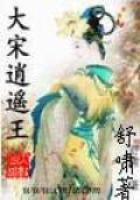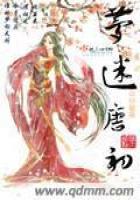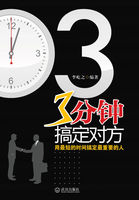"Thus began," says Church, "the system of appeals to Rome, and of inviting foreign interference in the home affairs of England; and Anselm was the beginning of it." But however unfortunate it ultimately proved, it was in accordance with the ideas and customs of the Middle Ages, without which the papal power could not have been so successfully established. And I take the ground that the Papacy was an institution of which very much may be said in its favor in the dark ages of European society, especially in restraining the tyranny of kings and the turbulence of nobles.
Governments are based on expediencies and changing circumstances, not on immutable principles or divine rights. If this be not true, we are driven to accept as the true form of government that which was recognized by Christ and his disciples. The feudal kings of Europe claimed a "divine right," and professed to reign by the "grace of God." Whence was this right derived? If it can be substantiated, on what claim rests the sovereignty of the people?
Are not popes and kings and bishops alike the creation of circumstances, good or evil inventions, as they meet the wants of society?
Anselm felt himself to be the subject of the Pope as well as of the King, but that, as a priest; his supreme allegiance should be given to the Pope, as the spiritual head of the Church and vicegerent of Christ upon the earth. We differ from him in his view of the claims of the Pope, which he regarded as based on immutable truth and the fiat of Almighty power,--even as Richelieu looked upon the imbecile king whom he served as reigning by divine right. The Protestant Reformation demolished the claims of the spiritual potentate, as the French Revolution swept away the claims of the temporal monarch. The "logic of events" is the only logic which substantiates the claims of rulers; and this logic means, in our day, constitutional government in politics and private judgment in religion,--the free choice of such public servants, whatever their titles of honor, in State and Church, as the exigencies and circumstances of society require. The haughtiest of the popes, in the proudest period of their absolute ascendancy, never rejected their early title,--"servant of the servants of God." Wherever there is real liberty among the people, whose sovereignty is acknowledged as the source of power, the ruler IS a servant of the people and not their tyrant, however great the authority which they delegate to him, which they alone may continue or take away.
Absolute authority, delegated to kings or popes by God, was the belief of the Middle Ages; limited authority, delegated to rulers by the people, is the idea of our times. What the next invention in government may be no one can tell; but whatever it be, it will be in accordance with the ideas and altered circumstances of progressive ages. No one can anticipate or foresee the revolutions in human thought, and therefore in human governments, "till He shall come whose right it is to reign."Taking it, then, to be the established idea of the Middle Ages that all ecclesiastics owed supreme allegiance to the visible head of the Church, no one can blame Anselm for siding with the Pope, rather than with his sovereign, in spiritual matters. He would have been disloyal to his conscience if he had not been true to his clerical vows of obedience. Conscience may be unenlightened, yet take away the power of conscience and what would become of our world? What is a man without a conscience? He is a usurper, a tyrant, a libertine, a spendthrift, a robber, a miser, an idler, a trifler,--whatever he is tempted to be; a supreme egotist, who says in his heart, "There is no God." The Almighty Creator placed this instinct in the soul of man to prevent the total eclipse of faith, and to preserve some allegiance to Him, some guidance in the trials and temptations of life. We lament a perverted conscience; yet better this than no conscience at all, a voice silenced by the combined forces of evil. A man MUST obey this voice. It is the wisdom of the ages to make it harmonious with eternal right; it is the power of God to remove or weaken the assailing forces which pervert or silence it.
See, then, this gentle, lovable, and meditative scholar--not haughty like Dunstan, not arrogant like Becket, not sacerdotal like Ambrose, not passionate like Chrysostom, but meek as Moses is said to have been before Pharaoh (although I never could see this distinguishing trait in the Hebrew leader)--yet firmly and heroically braving the wrath of the sovereign who had elevated him, and pursuing his toilsome journey to Rome to appeal to justice against injustice, to law against violence. He reached the old capital of the world in midwinter, after having spent Christmas in that hospitable convent where Hildebrand had reigned, and which was to shield the persecuted Abelard from the wrath of his ecclesiastical tormentors. He was most honorably received by the Pope, and lodged in the Lateran, as the great champion of papal authority. Vainly did he beseech the Pope to relieve him from his dignities and burdens; for such a man could not be spared from the exalted post in which he had been placed. Peace-loving as he was, his destiny was to fight battles.
In the following year Pope Urban died; and in the following year William Rufus himself was accidentally killed in the New Forest.
His death was not much lamented, he having proved hard, unscrupulous, cunning, and tyrannical. At this period the kings of England reigned with almost despotic power, independent of barons and oppressive to the people. William had but little regard for the interests of the kingdom. He built neither churches nor convents, but Westminster Hall was the memorial of his iron reign.















